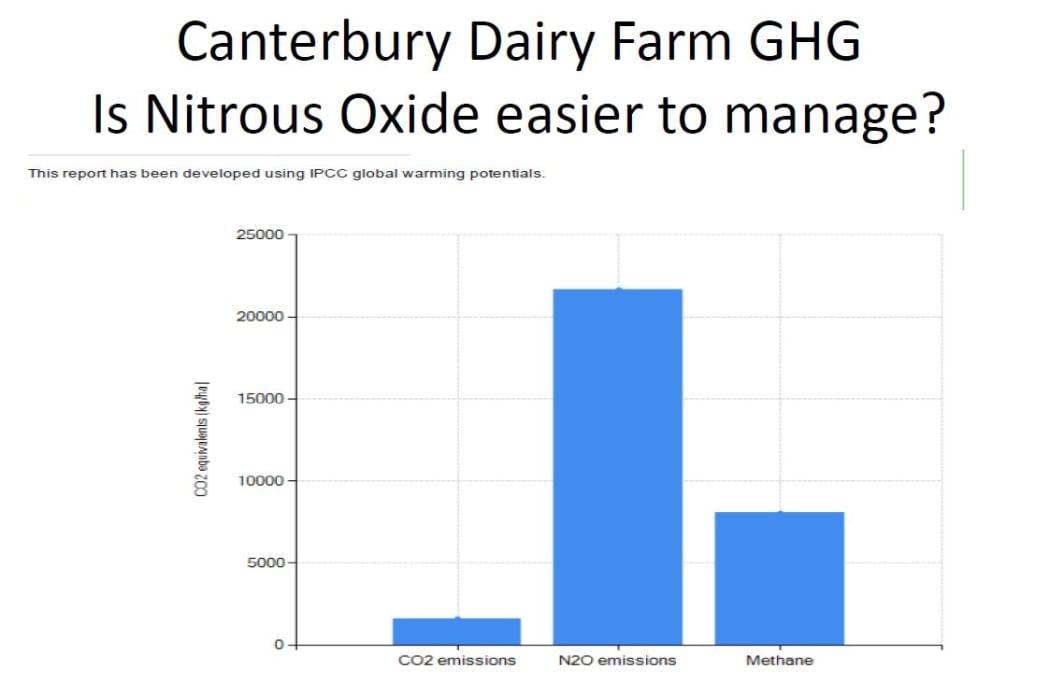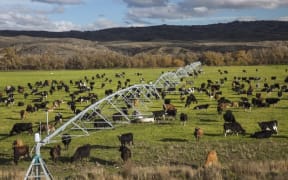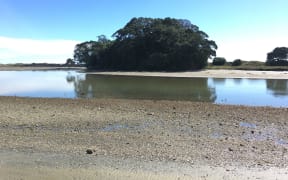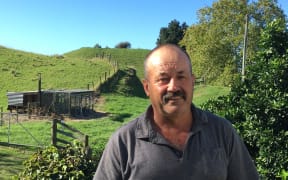New Zealand farmers should act now to start reducing greenhouse gases instead of waiting for advice from the government, says an agribusiness consultant.
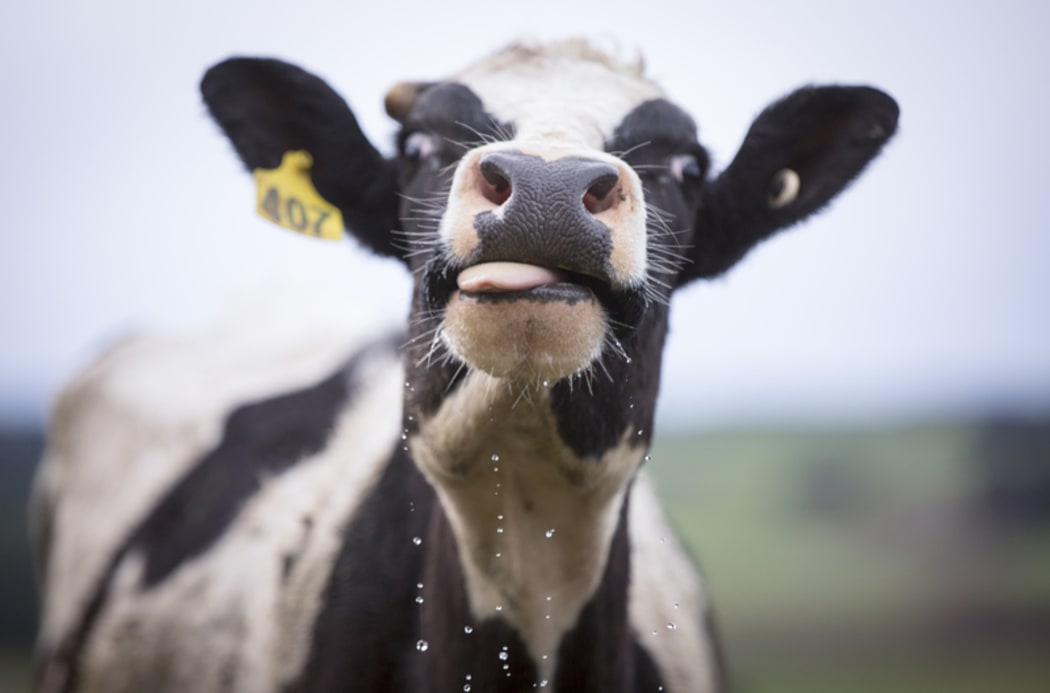
Photo: RNZ / Rebekah Parsons-King
In 2010, 19 percent of global warming was caused by livestock emissions of the greenhouse gases methane and carbon dioxide, according to a study by the Agricultural Greenhouse Gas Research Centre.
The Labour-led government wants to introduce a Zero Carbon Act with the goal of net zero for greenhouse gas emissions by 2050.
It also wants to include agriculture in the Emissions Trading Scheme, which would be decided by a new Climate Commission.
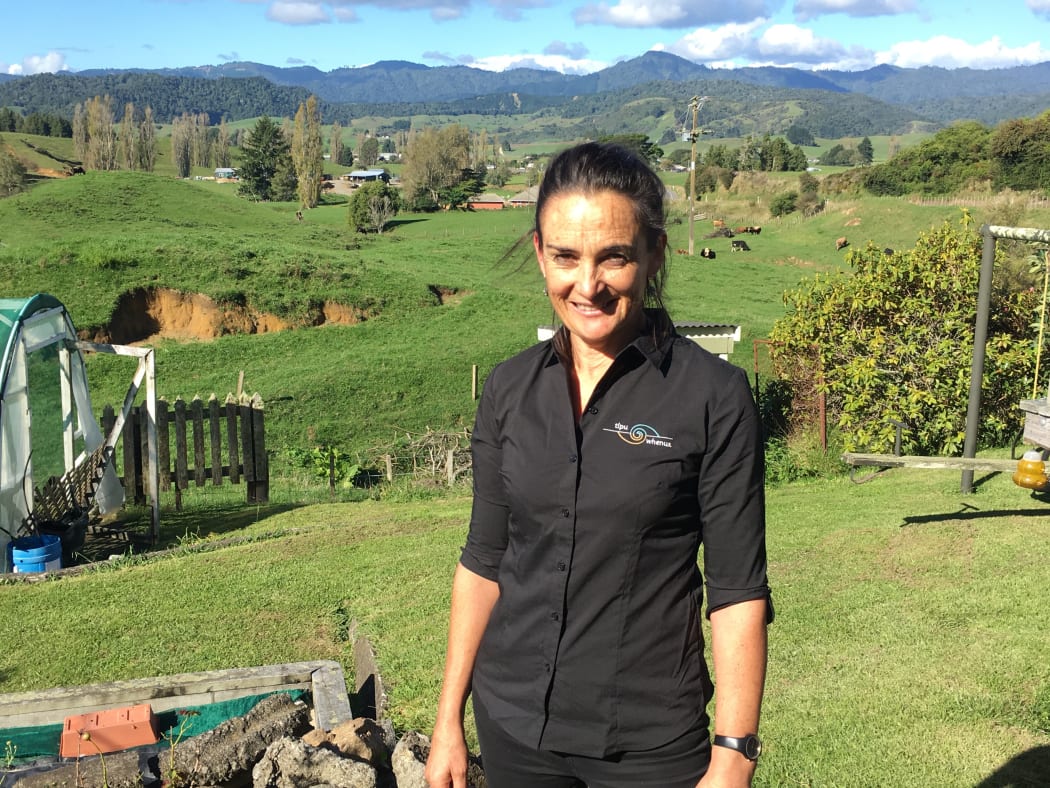
Alison Dewes Photo: RNZ / Alexa Cook
Agribusiness consultant Alison Dewes said greenhouse gases from pastoral farming are made up of nitrous oxide, methane, and carbon dioxide.
She said on a typical irrigated Canterbury dairy farm the nitrogen cycle is up to 40 percent of its total emissions.
While there are different regions and different farms, the nitrogen cycle could be managed and constrained by farmers, said Dr Dewes.
"We know for sure that methane is going to be a hard one to manage, but we know we can start managing the nitrogen cycle.
"Many dairy farmers for example, depending where they start, can drop by around 30 percent. DairyNZ's own work shows that."
It was a win-win for greenhouse gases and water quality, but the farming sector needed to start working on it, said Dr Dewes.
"I'd be thinking about focussing on the nitrogen part of that whole footprint. There's a lot of work being done on how to reduce nitrous oxide from their farming systems, things like less nitrogen fertiliser, less or no cropping at all and that's happening in some catchments like Rotorua.
"Certainly lower stocking rates - I've been talking about this for years - that we need to optimise our stocking rates and drop them in a lot of cases, less protein in the diet."
She said farmers could also manage effluent better and extend its application so that there was less reliance on nitrogen fertiliser.
The government's nutrient-loss monitoring tool, Overseer, did not measure good actions that farmers were taking, Dr Dewes said.
"Things like where they've planted wetlands, or retired steep slopes, or they've lined and improved their effluent system.
"There's a lot of things that need to be fixed, but there are some simple things that can be done already."
Confusing messages for farmers
Dr Dewes said there was not enough simple and straightforward advice for farmers.
"Messages have been confused.
"If we had a message that said 'if you started constraining nitrogen at the nitrogen cycle in these systems you're going to get a win-win not only for water but also for climate' - then farmers would be a lot more engaged in it."
There was a lot of disruption on the way for agriculture around a range of issues, and the sector needed to be better prepared, she said.
"Our leadership really does need to start talking about the challenges that are coming and start helping our farmers work forward with solutions.
"We need real transparency around what the issues are that are coming at us."
She said for a start there needed to be more independent science, a better farm measurement tool than Overseer, and a halt on intensifying land use.
Recently Dr Dewes was appointed as head of environment for the state owned Landcorp.
Dr Dewes said Landcorp, as New Zealand's largest pastoral farmer, had the responsibility to be a leader in the environmental space, including carefully piloting new ideas, and ultimately doing the right thing.

